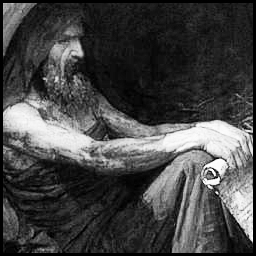Monthly Archives: March 2013
44 — Jessica Stoyadinovich
a.k.a: Stoya
Occupation: Porn Star
Born: 1986
Died: Not Yet
Brief Description:
Stoya was born in North Carolina of a Serbian father and a Scottish mother. She was home-schooled and got her high-school diploma before the age of sixteen. Later, she moved to Delaware to attend college but dropped out. She then moved to Philadelphia where she started to pose for photo-shoots (with her clothes on). Gradually, she started posing nude then doing girl-on-girl scenes and eventually, everything else…
She is an exclusive contract performer for Digital Playground and is regarded as their first alt porn contract girl.
Her stage name “Stoya” was her nickname before appearing in adult films and is the shortened version of her family’s last name.
In 2009, Stoya won AVN’s Best New Starlet.
Why she’s on the list:
Technically, Stoya is not my favorite porn star: I don’t really have a favorite porn star but I do love porn stars in general. I also like the concept of porn and the idea of selling pleasures and fantasies.
I happen to love girls with huge plastic boobs, multiple piercings and full-back and sleeves tattoos. But Stoya lacks all these, so why her?
I don’t know. Maybe because she’s a porn star that just doesn’t fit the stereotype.
Physically, I like the fact that she’s relatively thin and tall with a strong contrast between her dark hair and light skin.
Intellectually, Stoya is smart, sharp and witty in a fun way. (At least that’s the public image she projects.)
She also likes to read. Seriously. Bonus points for being mentally twisted.
In general, it seems to me that Stoya is well-suited to be the placeholder and representative of porn stars on my list.
To recap: Porn stars are awesome and Stoya is awesomer so she gets a place on this awesomest list.
Quote Stoya
Quote
“They say I’m their future wife, or I’d look good with their dick in my mouth.”
— STOYA
Image
45 — Diogenes of Sinope
a.k.a: Diogenes the Cynic
Occupation: Philosopher
Born: circa 412 BCE
Died: 323 BCE
Brief Description:
Diogenes is regarded as one of the founders of the cynic philosophy, which later inspired stoic doctrines. While the factual description of his life would sound boring, the anecdotes behind the man and his philosophy are awesome and give a deep insight into the character, so I shall focus on these…
Diogenes was born in Sinope (mordern-day Turkey). His father was a banker and it is likely he was helping him out. At some point, they became embroiled in a scandal involving the defacement of the currency and Diogenes got exiled from the city. Little else is known about his early life.
After his exile, Diogenes moved to Athens. There, he used his simple lifestyle and behavior to criticize the social values and institutions of what he saw as a corrupt society.
He made a virtue of poverty. He lived in a large ceramic jar and was known for carrying a lantern in the daylight, looking for an honest man.
Later in his life, he got captured by pirates and got sold to a Corinthian. Stories vary regarding what happened next but he most likely lived the rest of his life in Corinth, preaching his doctrines.
Anecdotes:
– When he was asked where he came from, he replied that he was a citizen of the world (cosmopolitan).
– When Plato gave Socrates’ definition of man as “featherless bipeds” and was much praised for the definition, Diogenes plucked a chicken and brought it into Plato’s Academy, saying, “Behold! I’ve brought you a man.” After this incident, “with broad flat nails” was added to Plato’s definition.
– When Alexander The Great met Diogenes. He was very thrilled to meet the famous philosopher and asked him if there was anything he could do for him. Diogenes, who was relaxing in the sunlight, replied: “Yes, stand out of my sunlight.” As everybody laughed, Alexander declared: “If I were not Alexander, then I should wish to be Diogenes.” To that, Diogenes replied: “If I were not Diogenes, I too should wish to be Diogenes.”
– When he once visited the magnificent house of a rich man, he spat in the rich man’s face then said: “I didn’t dare to spit anywhere else.”
– When he was going to be sold as a slave, he was asked what his trade was. He replied that the only trade he knew was that of governing men and therefore, that he wished to be sold to a man who needed a master.
There’s plenty more but these are my favorite. Besides, it’s meant to be a brief description, so I’m keeping it as such.
Why he’s on the list:
The Cynics’ philosophy is to live in agreement with Nature and to become free from the influences of desire such as wealth, power and sex which have no value in Nature.
I always thought this was bullshit and I still do.
However, another one of the Cynics’ principle states that happiness depends on being self-sufficient and a master of mental attitude and for this, I respect them.
Diogenes has been able, throughout his life, to live by those principles and has always shown virtue through actions rather than theory.
But that wouldn’t be enough to make it on this list: this list is for badass people only.
That being said, Diogenes is a critical thinker who doesn’t respect anybody or anything except truth and virtue and those who apply them.
Combine this genuine attitude with the fact that he just doesn’t give a shit about anything and now it makes perfect sense that he’s on this list.
Quote Diogenes
Quote
“Why not whip the teacher when the pupil misbehaves?”
— DIOGENES
Image
46 — Louis XIV of France
a.k.a: Le Roi-Soleil
Occupation: King
Born: 1638
Died: 1715
Brief Description:
In 1638, after 23 years of marriage, Anne of Austria finally gave birth to a child, leading contemporaries to regard him as a divine gift and Louis XIV (only the Dauphin at the time) was named Louis-Dieudonne as a consequence. Louis XIII died at the end of the Thirty Years War when his son was only four years old so his mother ruled as regent until her son could claim his throne.
When Louis XIV came into power, France was going through turbulent times and so, he did not live the privileged life of a king-to-be.
In 1660, at the age of 22, Louis married the daughter of King Philip IV of Spain, Marie-Therese, in order to seal the peace treaty after the Thirty Years War. But despite their 6 children and the evidence of affection early on in their marriage, Louis wasn’t devoted to his wife and took many mistresses, both official and unofficial, during his lifetime.
One year later, Cardinal Mazarin, who had been like a father to Louis, died and Louis XIV became King of France. Louis XIV ruled as an absolute monarch of France and involved himself in all matters of state. His statement “L’etat, c’est moi.” is very representative of the way he ran his government.
During Louis’ reign, France fought three majors wars (the Dutch War, the War of the Spanish Succession, the War of the Palatinate) as well as two lesser wars (the War of Devolution and the War of the Reunions) and gained land as a result of these conflicts. But even though France spent most of its years under the reign of Louis XIV fighting wars, it also flourished culturally during these same years. By bringing the Academie Francaise under his patronage, he became its protector, protecting writers such as Moliere, Racine and La Fontaine, whose work remain greatly influential to this day. He also supported music and the visual arts. But perhaps the most spectacular of his achievements remains the Palais de Versailles, which was originally a hunting lodge built by his father and where he eventually relocated his court, thus giving the Louvre to the arts and the public.
He died of gangrene in 1715 after 72 years on the throne. His great-grandson, Louis Duke of Anjou, became his successor (Louis XV) since his son, grandson and eldest great-grandson had all predeceased him.
Why he’s on the list:
Louis XIV put in place the Code Louis, which was later used as a basis for the Napoleonic Code, which itself is still used today as the basis for many modern legal codes. And Napoleon himself, who was anti-Bourbon (Louis XIV was of the House of Bourbon), described him as “the only King of France worthy of the name”.
I love absolute monarchies and I hate democracies. Of course, absolute monarchies are double-edged swords as monarchs can lead their kingdoms to greatness but also to ruin depending on their characters, philosophies and visions. But at least there’s a slight chance it might work. Democracies, on the other hand, never work as politics and personal interests inevitably get in the way of good judgement. I am using democracy here only as a modern example for the other end of the spectrum. In contrast, Louis adhered to the theory of the divine rights of kings, became the most powerful French monarch and consolidated a system of absolute monarchical rule. This, me likey!
But what I like most, even though Louis XIV was often criticized for it, was his vanity. It is said that “there was nothing he liked so much as flattery, or, to put it more plainly, adulation; the coarser and clumsier it was, the more he relished it”. He cultivated his public image and the idealization of the monarch by having himself depicted as Roman Emperors, as Gods and even as Alexander The Great. And if you still don’t think vanity’s cool, just check the Galerie des Glaces at Versailles, it’s enough to understand why he’s on this list.
Quote Louis XIV
Quote
“I almost had to wait.”





